Behind the News
Behind the News: All the backstories to our major news this week
Published
2 months agoon
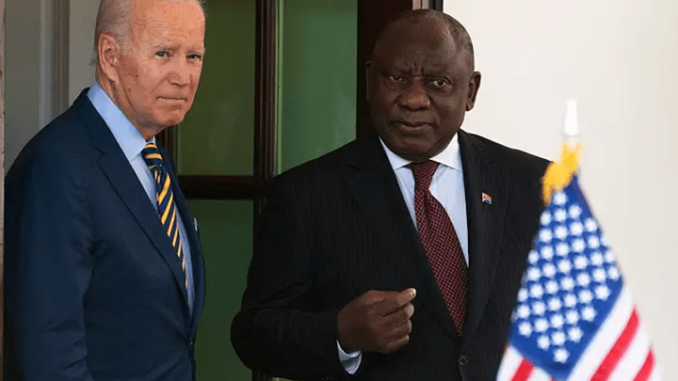
Over the past week, there were many important stories from around the African continent, and we served you some of the most topical ones.
Here is a rundown of the backstories to some of the biggest news stories in Africa that we covered during the week:
Inside the controversy over Ghana’s anti-LGBT legislation
Reactions have continued to trail Ghana’s recent anti-LGBTQ bill, with the finance ministry warning on Wednesday that it may cause the country to lose $3.8 billion in World Bank financing over the next five to six years if it becomes law which lawmakers overwhelmingly approved legislation last week that will further up the crackdown on the rights of LGBTQ individuals and anyone suspected of promoting LGBTQ rights.
The positions of African countries against the LGBTQ community have always been a subject of division, particularly against Western powers and some of their agencies, while the European Union’s decision not to cut funding to Uganda over a harsh anti-LGBTQ law was criticised by gay rights activists. In 2023, Uganda had its fair share of pressure, with the World Bank insisting that the East African country’s “Anti-Homosexuality Act fundamentally contradicts the World Bank Group’s values. We believe our vision to eradicate poverty on a livable planet can only succeed if it includes everyone, irrespective of race, gender, or sexuality.”
Ghana’s is the latest African country to go in the direction of anti-LGBT law, sponsored by a coalition of religious and traditional leaders and favoured most lawmakers, and it appears the “latest is the harshest.” Those who engage in LGBTQ sexual acts might be imprisoned for a maximum of three years or six months under the terms of the bill. Additionally, “willful promotion, sponsorship, or support of LGBTQ+ activities” carries a three-to five-year prison penalty under the measure.
The bill also stipulates that every Ghanaian now has a duty to ‘promote and protect’ heterosexuality; every parent, guardian, religious teacher, school teacher, traditional leader, imam and pastor must all start promoting heterosexuality; media and creative artists—musicians, actors, dancers, performers, etc.—must all teach and make ‘conscious effort’ to promote heterosexuality. The bill also provides that a foreigner who has entered into, has administered or witnessed a same-sex marriage (that is legal in your own country) is automatically a criminal in Ghana and can go to jail for up to three years, amongst other provisions.
Many arguments against the proposed law that is yet to be assented by President Nana Akufo-Ado stretch from the burden of non-allegiance placed on a likely “innocent public,” as it makes heavy stands against being indifferent or passive against same-sex practice in the West African country. Analysts say non-LGBTQ Ghanaians are more likely to be caught in the web of the law than actual gay people if assented, thus raising critical rights concerns.
The proposed law is a test of the socio-cultural history of the country. Being the most culturally liberal in the West African subregion, being home to many asylum seekers and political fugitives, and its largest tribe, the Ashanti, being of matriarchal tradition but with much homosexuality, can it accommodate?
US isn’t giving up on South Africa
The United States Deputy Treasury Secretary, Wally Adeyemo, who is of Nigerian descent, will travel to South Africa (SA) next week. Adeyemo’s tour will cover topics such as US sanctions, work against wildlife trafficking, investments in young leaders and entrepreneurs, sustainable energy transition, and illicit finance.
The proposed visit is in the spotlight for international observers as there have been recent strains in relations between the countries. Unsurprisingly, South Africa’s relations with European giants and US ideological rival Russia have continued to blossom. Last year, United States ambassador Reuben Brigety accused SA of providing ammunition to Russia through ships, contrary to its public claim of being non-aligned in the Russia/Ukraine crisis.
“Among the things we noted was the docking of the cargo ship in the Simon’s Town naval base between December 6 and 8, 2022, of which we are confident we uploaded weapons and ammunition onto that vessel as it made its way back to Russia,” said the US ambassador.
The US and its allies have imposed a plethora of sanctions on Russia following its invasion of Ukraine, aimed at the nation’s banking industry, military industrial base, and Russian President Vladimir Putin, but Johannesburg remains a close ally, has almost hosted Putin and threatened to ignore the ICC’s ruling against the Russian president if he had visited.
South Africa has maintained an international ideological stance that opposes the US on global turf; more recent is its stand against US ally Israel’s engagement in the ongoing Hamas war by dragging it to the International Court of Justice (ICJ) and asking the World Court to issue a non-binding legal opinion that the Israeli occupation of Palestinian territories is illegal.
Despite its stance, it remains an irresistible toast to Washington, which is desperate to restore its dwindling influence in Africa, with many on the continent now favouring US global rivals, China for economic and trade partnerships, and Russia for military relations. Being Africa’s most industrilized economy, South Africa is core to whatever the US hopes to achieve in its last quest to “return” to Africa.
Zambia’s new maize policy and musings on intra-continental trade
On Saturday, the Zambian government made it illegal to export feeds made with maize ingredients until it conducted an audit of the country’s maize harvest to determine the full extent of the damage caused by the continuing drought. Zambia’s latest maize policy raises questions about the age-long discussion on regional integration and trade relations on the continent.
The position might affect food supply as Zambia is the largest net supplier of maize in the world. It exported almost 1.1 MMT of corn in MY 2022/23 on record carry-over stocks of 1.5 MMT and higher demand from East Africa and neighbouring countries, and production of its staple crop, corn, is expected to grow by 23 percent to 3.3 million metric tonnes (MMT) in marketing year (MY) 2023/24, mainly due to an upsurge in planted area.
In a similar fashion, the Government of the Republic of Tanzania has officially communicated to the Zambian government its availability to export maize to Zambia. Nigeria, which is the food basket for the West African subregion, has also adopted similar anti-food export policies amidst its growing food crises.
Despite having the largest free-trade in the world in terms of the number of participating countries since the formation of the World Trade Organisation following the formation of the African Continental Free Trade Area (AfCFTA) which was a free trade area in 2018, “self-preservation” remains the biggest relational factor for many Africans with strict protectionist policies, which although affect formal intra-continental trade, only to become the lifeblood of smuggling.
Africa’s GDP and its internal trade expanded fourfold over the past two decades, according to the report, which suggests that intra-African trade is more resilient than exchanges with other regions of the world, Africa’s trade and regional integration face several obstacles. Transportation and communication infrastructure for intra-African trade are less developed than those that connect Africa to the rest of the world.
Ahead of the first election in the world’s youngest country
South Sudan, the world’s youngest independent state, is one of 19 African countries expected to hold elections this year, and there have been warnings from a senior US State Department official quoted by Reuters that unless immediate action is taken, the planned December elections are not likely to be a credible process due to the government’s delayed preparations.
“I give it 50/50” about the possibility that the elections in December would go as scheduled…If there’s either a delay or violence, I think we would look at the whole suite of options, including sanctions,” the official said.
Since its descent into civil conflict in 2013, South Sudan has experienced severe instability due to a long-standing political rivalry between First Vice President Riak Machar and President Kiir. This rivalry has strong ethnic overtones, as both leaders have successfully rallied support from the country’s two largest ethnic bases, the Nuer and the Dinka.
President Salva Kiir of South Sudan has built a career out of stalling elections, which has allowed him to hold the office de facto since 2005 despite only being qualified for a single four-year term after the country’s 2011 independence vote. He has since managed extensions in 2020, 2022, 2015, and 2018.
Kiir’s announcement to be a candidate in the election is profound, as the continent already boasts of some of the world’s longest-serving leaders with decades at the seat of power in countries like Equatorial Guinea, Cameroon, Uganda, and Rwanda. Thus, it seems that the biggest obstacle to South Sudan’s holding legitimate elections is a lack of political will to both hold credible elections and establish independent oversight agencies.
You may like
-
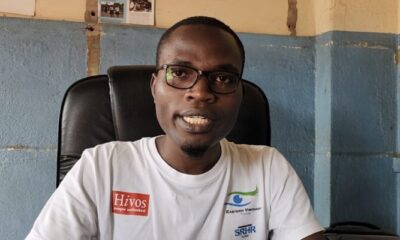

Youth leader laments infringements on digital rights, language barriers in media access
-
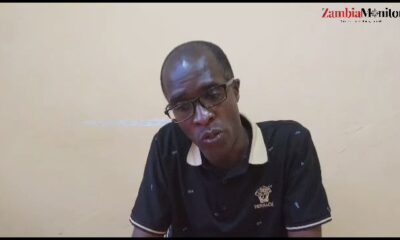

Disability rights group says Cyber Security Act protects politicians more than vulnerable citizens
-
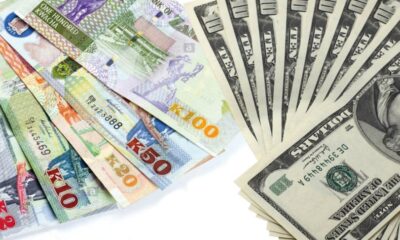

Best-to-Worst: Zambian currency hits record low
-
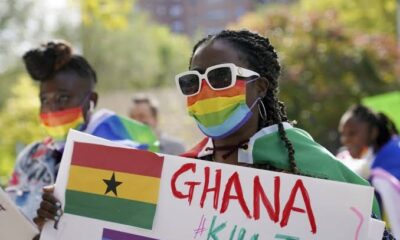

Ghanaian Supreme Court begins hearing in case challenging anti-LGBTQ+ bill
-
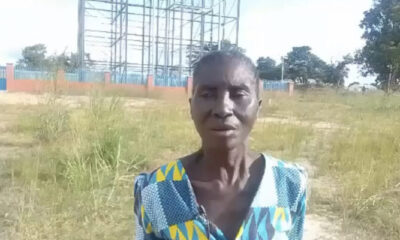

‘Rights must go with responsibilities,’ traditional leader cautions on use of social media
-
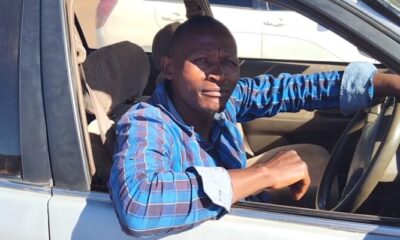

Lack of awareness on Cyber Security Act persists, prompting calls for enhanced sensitization in Kasama
Behind the News
Behind the News: All the backstories to our major news this week
Published
6 days agoon
May 5, 2024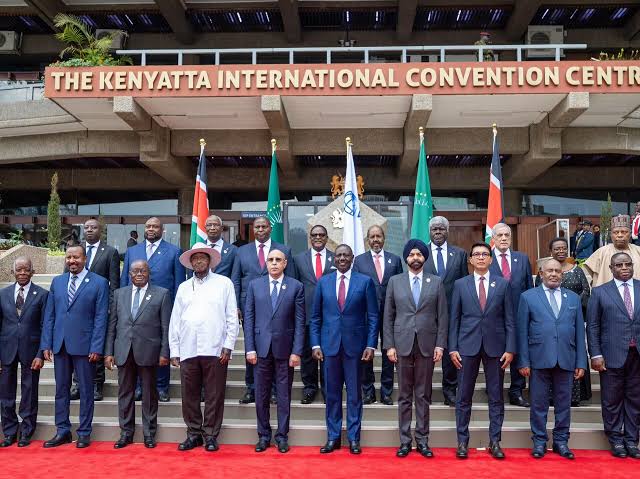
Over the past week, there were many important stories from around the African continent, and we served you some of the most topical ones.
Here is a rundown of the backstories to some of the biggest news stories in Africa that we covered during the week:
Different takes as African leaders spotlight multilateral loans
The call for a reform in the financial instrument of multilateral bodies like the International Monetary Fund (IMF) and the World was at the front burner in the week as African leaders on Monday called for rich countries to commit to record contributions to a low-interest World Bank facility for developing nations. The leaders stressed that most African countries depend on the fund to sponsor development and combat climate change.
Kenya’s President William Ruto told a meeting of African leaders and the World Bank to discuss IDA funding, “call on our partners to meet us at this historic moment of solidarity and respond effectively by increasing their IDA contributions… to at least $120 billion.”
Ruto has been a notable voice in the call. Last year, during a session at the Paris Climate Summit, he called for a new global financial architecture outside the present creditor system which according to him tilts in favour of lenders like the IMF and the World Bank.
“We need a financial consumption tax at a global level that countries like Kenya pay, we do not want anything for free, we will pay more eventually because we have a bigger economy. We want those resources controlled not by IMF and World Bank because IMF and World Bank have the final say…,” Ruto said.
The World Bank has maintained that IDA lends money to 75 poor countries around the world at low-interest rates. More than half of these countries are in Africa. Governments use the money to improve access to healthcare and energy, put money into farms, and build important things like roads.
But Ugandan President, Yoweri Museveni, expressed a fresh perspective to the discourse at the same event as he urged African leaders to verify the true intentions of multilateral lending institutions towards the continent. He asked African leaders to “audit the intentions of the World Bank loans to ensure that they are for prosperity rather than profiteering”. He added: “What loans are we getting as Africa? Is the World Bank giving us loans for private sector-led growth or to be more dependent?”
“Our populations are increasing, but our economies are stunted. The International Development Association (IDA) should tell us why they are funding the modern slavery of Africans, and we should address issues like why Africa is producing what it does not consume and consuming what it does not produce”, the Ugandan leader stated.
Interventions by multilateral bodies have remained controversial in some cycles although the bodies have claimed that poverty reduction is one of their objectives, but some studies have shown that IMF borrower countries experience higher rates of poverty. A 2022 research by Glen Biglaiser and Ronald J. McGauvran which investigated the effects of IMF loan conditions on poverty using a sample of 81 developing countries from 1986 to 2016, found that IMF loan arrangements containing structural reforms contribute to more people getting trapped in the poverty cycle, as the reforms involve deep and comprehensive changes that tend to raise unemployment, lower government revenue, increase costs of basic services, and restructure tax collection, pensions, and social security programmes.
Liberia enacts war crimes court; who should follow?
Liberia’s President Joseph Boakai has signed an executive order to establish a war crimes court. Boakai granted his final approval and congratulated the lawmakers for their effort in the legislation. A special court was eventually ordered to be established to try those who were deemed to be at fault by the Truth and Reconciliation Committee.
Many atrocities, such as rape, massacres, and the use of child soldiers, occurred during the wars that lasted from 1989 to 2003. In their fight against rebels affiliated with the Liberians United for Reconciliation and Democracy (LURD), government forces in Liberia have been accused of war crimes as well as grave violations of human rights, such as the widespread rape of women and girls, the summary execution of numerous civilians, and the looting and burning of entire villages.
Without warning or predetermined protocol, hundreds of civilians were allegedly arbitrarily and forcibly conscripted and deployed to fight on the front lines, frequently with little to no military training. The LURD troops have also been alleged to have committed grave crimes such as rape, forced recruitment of civilians, including child soldiers, and summary killings of suspected government collaborators.
Activists and civil society organizations that have demanded greater justice for crimes committed during the conflicts that claimed the lives of almost 250,000 people have praised the initiative. Some in Liberia are against its development, arguing that it could weaken the amnesty law that was already in place and cause old grievances to resurface. This helped put a stop to the violence.
Most African countries have a shared history of civil wars and internal crises that have made calls for special courts to try war popular in the continent. Nigeria, Rwanda, Ethiopia, Sudan, Congo DR have recorded thousands of deaths of civilians occurring in separate conflicts of armed groups. Some of those killings are also categorized as war crimes and crimes against humanity, with most cases unsolved and consequential agitations in cases for self-determination and secession by aggrieved section of the state, which account for the volatile nature of most African states.
Liberia’s template which has birthed a special war crimes court might be a direction to follow in states with these experiences, first to afford victims closure through justice and likely deterrent for likely war crime offenders but much still lies on the political will of the state to ensure justice despite the special court.
Scrabble for Niger as US accuses Russia over military base incursion
Despite remaining under military reign and retaining consequent pariah status in the international community, West African country, Niger Republic, appears to remain a toast for world powers as the United States and Russia had their latest confrontation over the country during the week. Russian military personnel have reportedly made their way into an American military air base in Niger, according to a senior US defence official cited by Reuters. This move follows the junta in Niger’s decision to expel American personnel.
Until a coup last year, the country had been a vital ally for Washington’s fight against insurgents who had killed hundreds of people and displaced millions more. Mali, Libya, Chad, the Central African Republic, and other nations on the continent have looked to Russia for security cooperation. Russian paramilitary soldiers have now landed in Niger, isolating the United States and compelling its 1,100 military personnel to leave the country for the next few months.
America will lose access to a vital military facility it needs to combat terrorist organizations like ISIS as a result of Russia’s increasing influence in Niger. To strike terrorist bases in the area, intelligence gathered from the U.S. drone base in Niger is crucial. In what global politics observers have labelled a “failed strategy” Cameron Hudson, a former intelligence officer for Africa at the CIA, referring to countries with coup governments in Africa noted that “when all of these countries kicked out the French and turned inward, we then tried to pivot to become the peacemaker in the hopes that we could keep our presence there.” “All of that is not working. We are now out. Russia is now in.”
According to US law, Washington is not allowed to give money to coup regimes like the one in Niger. However, in an attempt to eventually restore military and other financial support, American leaders have made an effort to retain diplomatic ties with those nations, many of which have abundant natural resources.
A few African leaders have praised Moscow’s participation, arguing that in situations where the United States is unable to offer prompt security support, Moscow can. Some have resisted American efforts for reform, arguing that the West has no right to preach democracy in Africa when it ignores comparable problems with its friends elsewhere in the world.
On Africa and long-distance race at the Olympic
Ahead of the 2024 Summer Olympic Games in Paris, France, Athletics Kenya named their six-man team on Wednesday. The team consists of three men and three women, with one reserve on each side. The team is led by Hellen Obiri, Benson Kipruto, and Eliud Kipchoge, the reigning champions. A “killer squad” the team has been called by sports enthusiasts giving the track record of the East African country at long-distance races. Kenyan and regional neighbours Ethiopian athletes have dominated the middle- and long-distance sports since the 1968 Mexico City Olympics. They have also shown a similar level of dominance in international cross-country and road racing competitions.
Benson Kipruto, the winner of the Tokyo Marathon, and Alexander Mutiso, the winner of the London Marathon, are both picked in the final Kenyan Olympic team. Timothy Kiplagat, the runner-up in Tokyo, will be backup in case any of the three chosen athletes are unable to compete. As she travels to Paris in fine form, having set a new women’s only world record last month by winning the London Marathon, Jepchirchir will have an opportunity to defend her championship with the final team list.
Their success has attracted significant attention on a global scale and has been the focus of social, sporting, and even scholarly studies. Genetic predisposition, development of high maximal oxygen consumption as a result of extensive walking and running at an early age, and comparatively high haemoglobin and hematocrit were some of the factors identified by Randall L. Wilber and Yannis Pitsiladis.
Developing a good metabolic “economy/efficiency” based on somatotype and lower limb characteristics, having an advantageous oxidative enzyme profile and skeletal-muscle-fiber composition, living and training at altitude, following a traditional Kenyan/Ethiopian diet, and having the drive to succeed economically are additional factors. However, although the variety of physiological and anatomical explanations appear tenable for the dominance, no definitive advantage has been found through research as athletes from other parts of the world like Asia and North America with little or no features peculiar to East Africa have had considerable success in long-distance also.
East Africa will continue counting its medals with pride while the search continues.
Behind the News
Behind the News: All the backstories to our major news this week
Published
2 weeks agoon
April 28, 2024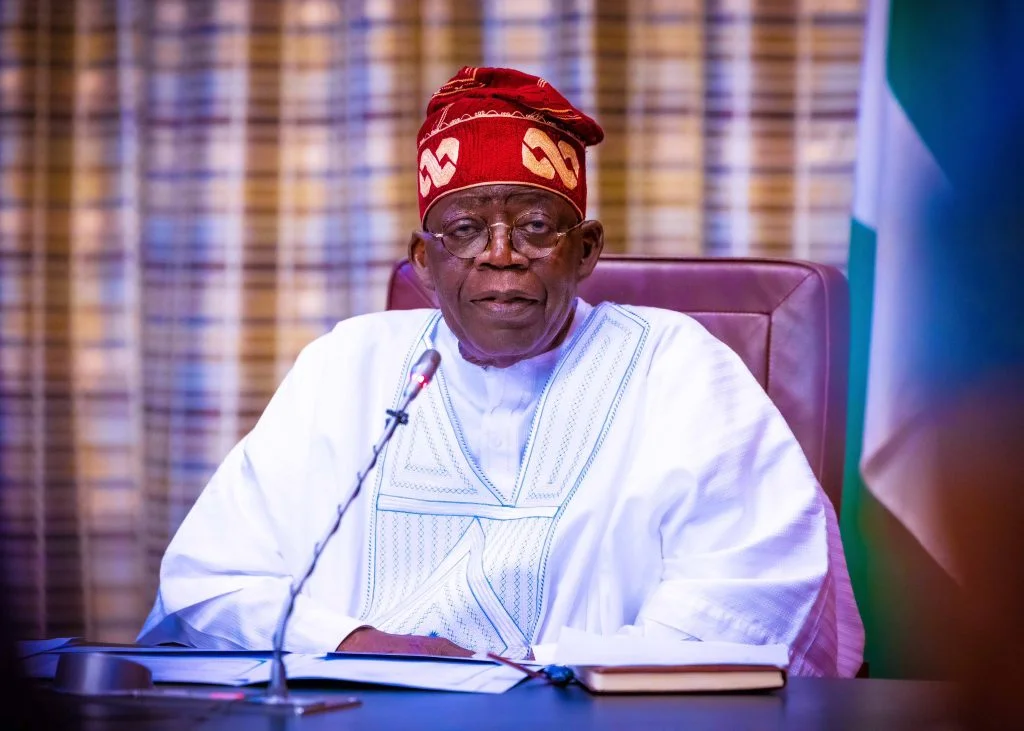
Over the past week, there were lots of important stories from around the African continent, and we served you some of the most topical ones.
Here is a rundown of the backstories to some of the biggest news in Africa that we covered during the week:
1. Renewed Hope: Tinubu’s regular sing-song and the sad reality of Nigeria
During the week in review, Nigeria’s President Bola Tinubu was once again at his rhetorical best when he pronounced the all the tough policy decisions and reforms he has undertaken since coming into office almost a year are have been in the best interest of Nigerians and the good of the country.
Tinubu who spoke during a bilateral business session with Dutch Prime Minister Mark Rutte at the Hague in the Netherlands, said every of his decisions were taken with the interest of his fellow citizens at heart.
He reiterated that his policies which have caused pains and anguish for Nigerians were in their best interest.
“I am a determined leader of my people. I am ever ready to take tough decisions in the best interest of the people, even if with initial pains,” Tinubu said.
“I have and will continue to take the difficult decisions that will benefit our people, even if there is short-term pain,” he added.
But beyond the regular promises of better days ahead by Tinubu and his team, the reality on ground in the country does not seem to align with so much optimism.
The first sign that things were going to be tough was when Tinubu pronounced the end of fuel subsidy in his inaugural address to the nation on May 29, 2023, without as much of a plan to ameliorate the anticipated economic crisis that was to follow.
Despite later attempts to provide some succour and buffers to cushion the effects of the subsidy removal, things have gone from bad to worse with the cost of living rising through the roof.
Inflation has gone up to an all time high of 30.20% according to the Nigeria Bureau of Statistics while prices of basic goods have gone beyond the reach of the average Nigerians, many who find it difficult to provide for their families.
But to President Tinubu, the pains and hardship Nigerians are currently going through will soon be a thing of the past because, according to him, his “tough policies” would yield positive results in the end.
“We have gone through the worst of the storms. I am unafraid of the consequences once I know that my actions are in the best long-term interests of all Nigerians,” he posited.
Nigerians are indeed waiting patiently for the fulfilment of these promises and are looking forward to a time they will go back to living a normal life again!
2. Discriminatory Chinese supermarket meets its match as Nigerian govt shuts mall
A Chinese supermarket located in the heart of Abuja, Nigeria’s capital, ran into hot water when the Federal Competition and Consumer Protection Commission (FCCPC), shut it down following allegations of discrimination against Nigerian shoppers.
Before the action of the government agency, a report had indicted that the supermarket located within the premises of the China General Chamber of Commerce in Abuja, was in the habit of barring Nigerian citizens from shopping in the mall.
Following the exposè which came with video evidence and investigations carried out by the FCCPC turned out to be true, officials of the agency promptly moved in and shut down the mall.
Director for Surveillance and Investigation of FCCPC, Boladale Adeyinka, who led the team, said they took the action was in response to a viral video showing Nigerians being discriminated against and not being able to get into an Abuja supermarket.
“The essence of the surveillance and investigation that we conducted today is to verify the allegations and the content of that viral video,” she told journalists during the exercise.
That was not the first time foreign business ventures have discriminated against Africans in their own country by refusing them their services.
A few years ago, a Chinese restaurant in Lagos was in the news for refusing to serve a Nigerian couple and it took the intervention of the state government for normalcy to return to the outfit after some Nigerian youth decided to vent their anger on the eatery.
Many Chinese, Lebanese and other companies run by foreigners in Nigeria have been found to discriminate against their Nigerian staff and customers but as usual, the powers that be have always turned a blind eye to such allegations, largely because the business owners have their plugs in the right places while the victims are always at the lower rung of the society.
3. Runaway Binance executive reportedly nabbed in Kenya
It was reportedly a bad day in the office for an executive director of global cryptocurrency firm, Binance Holdings Limited, Nadeem Anjarwalla, who had escaped from lawful detention in Nigeria, as he was arrested in Kenya.
Anjarwalla, a British-Kenyan citizen was arrested on arrival in Nigeria on February 26, along with another Binance official, Tigran Gambaryan, on allegations of tax evasion, money laundering and other charges.
But on March 22, Anjarwalla made an audacious escape from a guest house where he and Gambaryan were being held and was promptly declared wanted with the Nigerian authorities engaging the services of Interpol to help track him down.
The manhunt for Anjarwalla was ended when he was arrested in his hideout by a combination of Kenyan police and operatives of the Interpol.
The Kenya Police Service, in a statement confirming the arrest of the fugitive, said the fleeing Binance executive was arrested in “conjunction with the International Criminal Police Organisation (Interpol) and moves were being perfected for his extradition to Nigeria.
But beyond the arrest of Anjarwalla and the embarrassment it caused the country’s security agencies, a lot of questions have arisen from the episode.
Many Nigerians have continued to wonder how he managed to escape from the so-called safe house he and his colleague were being held.
How could Anjarwalla stage such an escape without the active connivance of some security officials who must have had their palms greased?
How did he manage to get a replacement passport to leave the country since his original passport had been seized by the Economic and Financial Crimes Commission upon his arrest?
Questions, and more questions have continued to rise and Nigerians are waiting for answers, if they will come at all.
4. Zambian CSO blames media polarisation for biased reportage
The Executive Director of a Zambian civil society organisation, Chama Mwansa, has blamed the polarisation of the media for biased coverage and reportage in the country.
Mwansa who is the ED of the Chandarika Women and Youths Foundation, in an interview with Zambia Monitor, said the media was balkanized between private and state-owned media outlets which has led to a bias in news coverage.
“The media plays a crucial role in society. Media freedom allows for comprehensive coverage of various perspectives, whether from the opposition or the ruling party,” she said in the interview.
She also harped on the importance of media freedom, freedom of speech, and digital rights in promoting social and economic development, and emphasized on the importance of media partnerships in facilitating coverage of events.
Mwansa’s observations on the polarisation of the media industry in her country can also be replicated in many African countries where the media is gagged and practitioners are made to look like the dregs of the society.
In many African countries, journalists are seen as dangerous species with many of them treated with disdain. Many journalists in different parts of the continent have been abducted, brutalized and killed for just doing their jobs which have constantly raised the question on the safety and freedom of journalists.
5. Al Ahly, Esperance in clash of titans for CAF Champions League trophy
For the fourth straight seasons, two of Africa’s most successful clubsides, Al Ahly of Egypt and Esperance of Tunisia, will clash in the final of the TotalEnergies CAF Champions League scheduled for next month.
Al Ahly which is the current holders of the title and their long-standing rivals Esperance, booked their places in the final in dramatic fashions to earn their places in the final of Africa’s epic football tournament.
Al Ahly cruised past former champions TP Mazembe of the DRC 3-0 in their two-legged semi final tie, while Esperance defeated another former winner, Mamelodi Sundowns of South Africa, running out with a 2-0 aggregate victory.
Al Ahly, winners of the five of the last seven editions of the CAF Champions League, will be aiming for her 12 trophy when they visit Esperance for the first leg in Rades on May 18, while the Tunisian giants will be gunning for a fifth Champions League title, which clearly puts the two teams as the best in the continent.
The second leg will hold in Cairo a week later, which, on paper, gives Ahly a sense of home advantage.
- But however it turns out, there will surely be fireworks as the two teams battle for the glory in the two-legged final and surely, whichever team comes out tops will be the best for the African continent.
EDITOR’S PICK
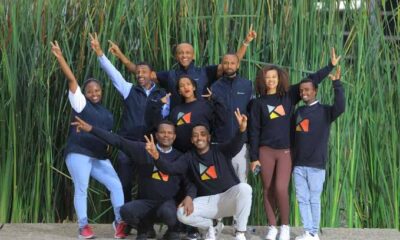

Ethiopian low-carbon startup Kubik gets $5.2m for its pan-African expansion project
Ethiopia’s low-carbon building startup, Kubik, has announced raising the sum of $5.2 million in seed funding which will enable it...


Youth leader laments infringements on digital rights, language barriers in media access
Limbigani Nyirenda, Executive Director of Easterner Visionary Youth, has voiced his concerns regarding the infringement of digital rights by political...


Nigeria’s Senate wants capital punishment for drug trafficking
The Nigerian Senate has put forward a proposal to greatly increase the severity of punishments for drug trafficking. This would...


Nigeria’s growth forecast for 2024 remains 3.3%— IMF
The International Monetary Fund (IMF) has upheld its projection of a 3.3% growth rate for Nigeria’s economy in 2024, an...


Tinubu restates commitment to making Nigeria self-sufficient in food production
Nigerian President Bola Tinubu has restated his commitment and determination to making Nigeria self-sufficient in food production before leaving office....
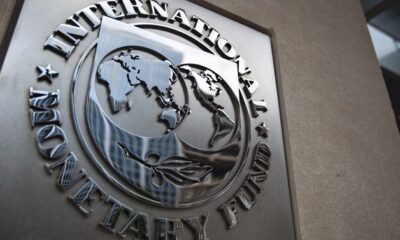

IMF, DR Congo agree on final review of loan deal
The International Monetary Fund (IMF) says it has achieved a staff-level agreement with the Democratic Republic of Congo (DRC) over...


Disability rights group says Cyber Security Act protects politicians more than vulnerable citizens
In Kasama, the Disability Inclusion-Friendly Barn Development Foundation, dedicated to addressing the challenges faced by individuals with disabilities, says the...


Video: Nigeria’s Dosunmu-Ogunbi becomes 1st-black female to bag PhD in Robotics at University of Michigan
In this video, an inspiring Oluwami Dosunmu-Ogunbi, who is of Nigerian descent, speaks at the university’s College of Engineering convocation...
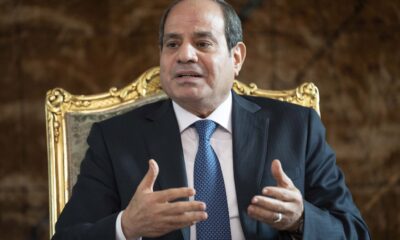

Egypt: Foreign debt rises by $3.5 billion in Q4 2023
According to data provided by the central bank on Thursday, Egypt’s foreign debt increased by $3.5 billion for the three...
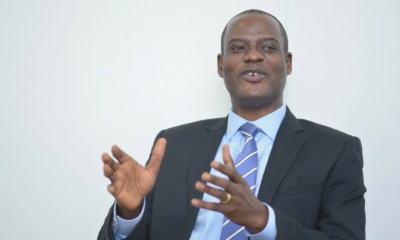

Nigerian govt proposes VAT increase, new sharing formula
Nigeria’s presidential committee on fiscal policy and tax has argued for the necessity of raising the value-added tax (VAT) rate....
Trending
-

 Video2 days ago
Video2 days agoVideo: Nigeria’s Dosunmu-Ogunbi becomes 1st-black female to bag PhD in Robotics at University of Michigan
-

 VenturesNow17 hours ago
VenturesNow17 hours agoNigeria’s growth forecast for 2024 remains 3.3%— IMF
-
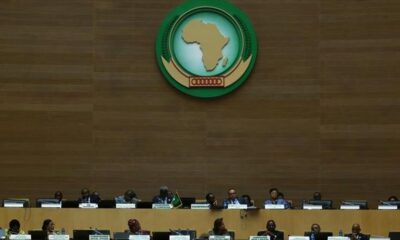
 Strictly Personal2 days ago
Strictly Personal2 days agoAU shouldn’t look on as outsiders treat Africa like a widow’s house, By Joachim Buwembo
-

 VenturesNow2 days ago
VenturesNow2 days agoNigerian govt proposes VAT increase, new sharing formula


